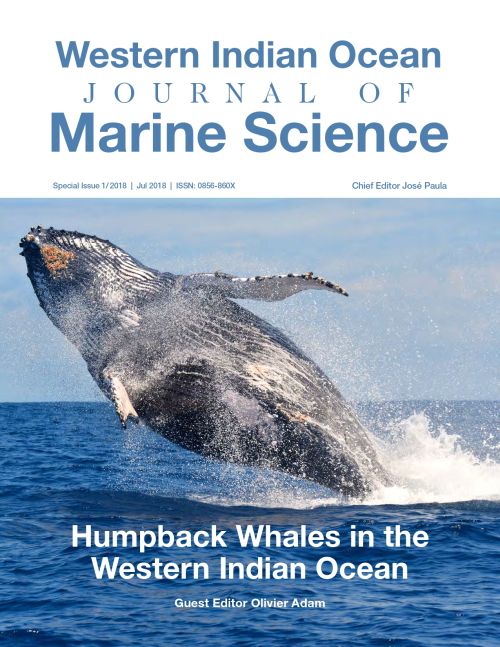Renata S. Sousa-Lima
Laboratório de Bioacústica, Departamento de Fisiologia e Comportamento and Programa de Pós-Graduação em Psicobiologia, Centro de Biociências, Universidade Federal do Rio Grande do Norte, Natal, RN, Brasil
Marcia H. Engel
Projeto Baleia Baleia Jubarte, Instituto Baleia Jubarte, Caravelas, BA, Brasil
Victor Sábato
Laboratório de Mastozoologia, Departamento de Zoologia, Instituto de Ciências Biológicas, Universidade Federal de Minas Gerais, Belo Horizonte, MG, Brasil
Bianca R. Lima
Instituto de Ciências Biológicas e da Saúde, Pontifícia Universidade Católica de Minas Gerais, Belo Horizonte, MG, Brasil
Thiago S.M. Queiróz
Laboratório de Mastozoologia, Departamento de Zoologia, Instituto de Ciências Biológicas, Universidade Federal de Minas Gerais, Belo Horizonte, MG, Brasil
Marcos R.M. Brito
Laboratório de Bioacústica, Departamento de Fisiologia e Comportamento, Centro de Biociências, Universidade Federal do Rio Grande do Norte, Natal, RN, Brasil
Deborah P. Fernandes
Laboratório de Bioacústica, Departamento de Fisiologia e Comportamento and Programa de Pós-Graduação em Psicobiologia, Centro de Biociências, Universidade Federal do Rio Grande do Norte, Natal, RN, Brasil
Cristiane A.C. Martins
Tryphon Océans
Paula S. Hatum
Laboratório de Bioacústica, Departamento de Fisiologia e Comportamento and Programa de Pós-Graduação em Psicobiologia, Centro de Biociências, Universidade Federal do Rio Grande do Norte, Natal, RN, Brasil
Thamires Casagrande
Laboratório de Bioacústica, Departamento de Fisiologia e Comportamento and Programa de Pós-Graduação em Psicobiologia, Centro de Biociências, Universidade Federal do Rio Grande do Norte, Natal, RN, Brasil
Laura K. Honda
Laboratório de Bioacústica, Departamento de Fisiologia e Comportamento and Programa de Pós-Graduação em Psicobiologia, Centro de Biociências, Universidade Federal do Rio Grande do Norte, Natal, RN, Brasil
Maria Isabel C. Gonçalves
Laboratório de Ecologia Aplicada à Conservação,Universidade Estadual de Santa Cruz, Ilhéus, BA, Brasil and Laboratório de Bioacústica, Departamento de Fisiologia e Comportamento, Centro de Biociências, Universidade Federal do Rio Grande do Norte, Natal, RN, Brasil
Júlio E. Baumgarten
Laboratório de Ecologia Aplicada à Conservação,Universidade Estadual de Santa Cruz, Ilhéus, BA, Brasil
Artur Andriolo
Laboratorio de Ecologia Comportamental e Bioacústica, Universidade Federal de Juiz de For a, Juiz de Fora, MG, Brasil and Instituto Aqualie, Juiz de Fora, MG, Brasil
Milton C. Ribeiro
Universidade Estadual Paulista “Julio de Mesquista Filho”, Rio Claro, SP, Brasil
Christopher W. Clark
Bioacoustics Research Program, Lab of Ornithology, Cornell University, Ithaca, NY, USA
Abstract
Whales are difficult to study. These large marine mammals cannot be maintained in captivity so they have to be studied in nature, and observing their underwater behavior becomes a challenge. The extensive distribution, large size, and aquatic life style of these leviathans constrain efforts to observe and understand the scale of what is being studied. Researchers have dealt with this challenge with wit, determination and creativity. Large whales are known for using long distance acoustic communication to coordinate social interactions such as mate attraction and group feeding, as well as a means for orientation and navigation. Therefore, sound is relied on to help “see” beyond the surface. Marine mammalogists were the first to modify existing technology from ocean bottom sensors to develop novel ways to listen underwater, taking advantage of the fact that these animals rely mostly on sound to survive and reproduce. In effect, biologists eavesdrop on the underwater lives of marine mammals by listening. Researchers listen to humpback whales using different passive acoustic technologies that span a variety of spatial and temporal scales. In this paper, studies conducted in Brazilian waters are reviewed, primarily in the Abrolhos Bank region, where basic and advanced technologies have been used to understand the acoustic ecology of this large marine mammal species. Male humpback whale culture, their social dynamics revealed by spatial and temporal vocal activity patterns, and their interaction with the encroaching noise generated by humans, are reviewed.






